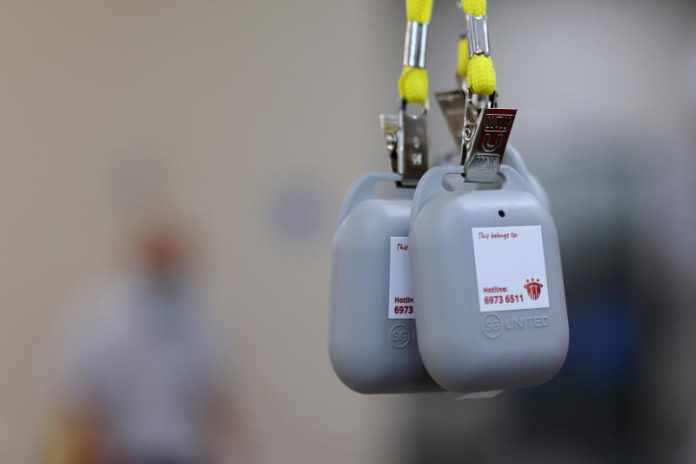The latest pandemic news reveals that Singapore is now distributing COVID contact-tracing tokens to detect infected people. A person can wear the token on a lanyard and carry them wherever they travel. Similar to the contact-tracing app, the token also uses Bluetooth to detect other devices. Moreover, it can also access any contact in the other device.
The COVID contact-tracing tokens are especially good options for the elderly adults who are not very comfortable using smartphones. The government of Singapore believes that distributing these tokens may help in reopening the economy. The device is capable of restarting conferences and detecting infections in riskier settings. For example, hotels, gyms, and cinemas are some of the areas that are more prone to infection.
The tracing tokens’ distribution process will start with the areas that have a more significant population of senior citizens. The primary reason for starting with such places is the lack of technical knowledge of the older citizens here. Besides, they are also the ones who are more prone to the risk of contracting COVID-19. Eventually, the tokens will be available to every Singapore resident, and even foreigners residing in the country.
Presently, there is a potent infection detection protocol in every public area of Singapore. Every person entering shops, office buildings, or other public buildings must undergo a thorough scanning process. The system they are using is known as SafeEntry, and the detections happen through unique QR codes. For more dangerous activities, SafeEntry will ask for the token or contact-tracing app code before someone enters a place.
Are COVID contact-tracing tokens better for maintaining privacy?
A technology consultant appointed by the government gives his feedback on the new token system. He confirms that this device is better than several other similar options when considering privacy and security. Bunnie Huang says that he prefers using the token over the contact-tracing.
He is the person who lined up to receive the token on day one of its availability. Similar to the contact-tracing app, the token will also save all the required information. Further, health officials can analyze the data and also upload it elsewhere. Also, token devices do not require a smartphone. Instead, the person needs to hang it on a lanyard or carried in a bag.
According to Bunnie Huang, there is a particular advantage of a hardware-only version over other varieties. For example, in that case, there is no possibility that a specific software update will turn on location data without the user noticing it. Besides, Huang added that if he does not want it, damaging the device entirely is possible in case of a tracing token.
Similar apps in other countries
The first country to come up with a contact-tracing app was Singapore. Since March, when the app was launched, almost 2.5million people have downloaded it. Moreover, over 1.4 million were still using it in August. Now, the Singapore government aims for a higher number of downloads to make both the app and the token successful. In other parts of the world, several other countries, such as China, also have their contact-tracing app. Moreover, Wales and England are to introduce their tracing apps by the end of September.



![Kyla Pratt Net Worth, Early Life, Career [2023] Kyla Pratt Net Worth](https://lessconf.com/wp-content/uploads/2023/06/Kyla-Pratt-Net-Worth-218x150.jpg)



